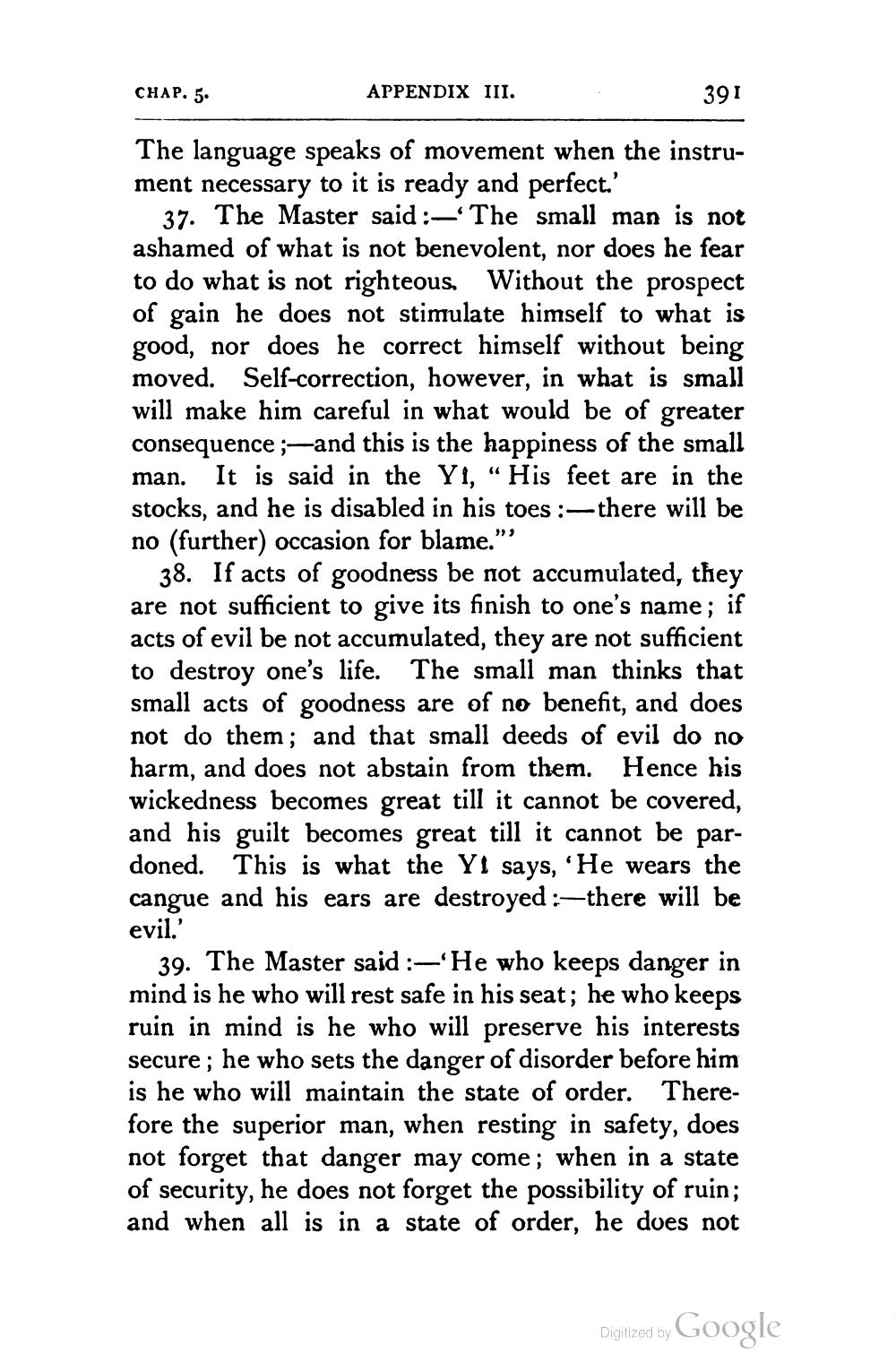________________
CHAP. 5.
APPENDIX III.
391
The language speaks of movement when the instrument necessary to it is ready and perfect.'
37. The Master said :-*The small man is not ashamed of what is not benevolent, nor does he fear to do what is not righteous. Without the prospect of gain he does not stimulate himself to what is good, nor does he correct himself without being moved. Self-correction, however, in what is small will make him careful in what would be of greater consequence;—and this is the happiness of the small man. It is said in the Yi, “His feet are in the stocks, and he is disabled in his toes :— there will be no (further) occasion for blame.”
38. If acts of goodness be not accumulated, they are not sufficient to give its finish to one's name; if acts of evil be not accumulated, they are not sufficient to destroy one's life. The small man thinks that small acts of goodness are of no benefit, and does not do them; and that small deeds of evil do no harm, and does not abstain from them. Hence his wickedness becomes great till it cannot be covered, and his guilt becomes great till it cannot be pardoned. This is what the Yt says, 'He wears the cangue and his ears are destroyed :—there will be
evil.'
39. The Master said :—He who keeps danger in mind is he who will rest safe in his seat; he who keeps ruin in mind is he who will preserve his interests secure; he who sets the danger of disorder before him is he who will maintain the state of order. Therefore the superior man, when resting in safety, does not forget that danger may come; when in a state of security, he does not forget the possibility of ruin; and when all is in a state of order, he does not
Digitized by Google




